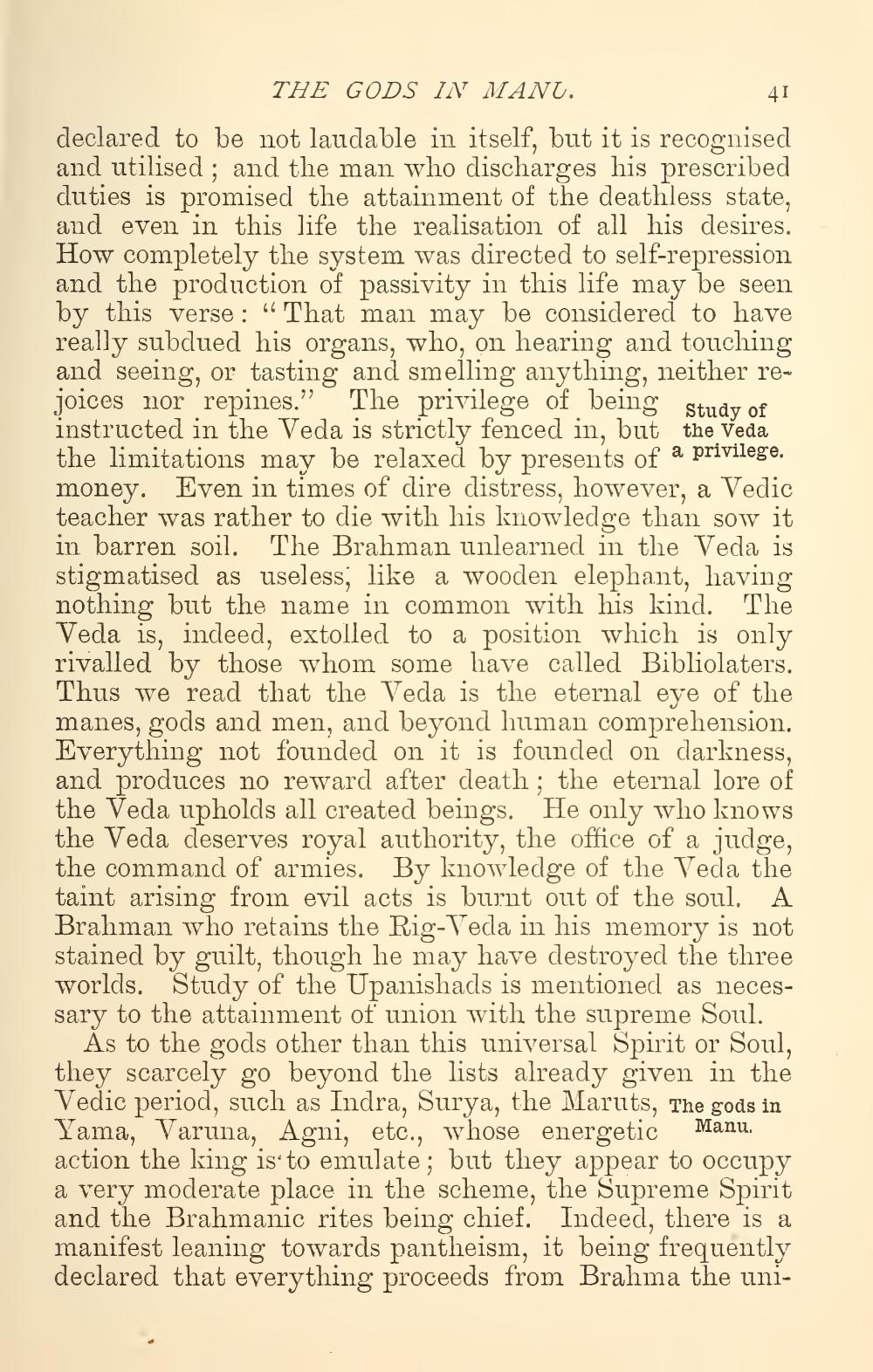________________
41
THE GODS IN MANU. declared to be not laudable in itself, but it is recognised and utilised ; and the man who discharges his prescribed duties is promised the attainment of the deathless state, and even in this life the realisation of all his desires. How completely the system was directed to self-repression and the production of passivity in this life may be seen by this verse: “That man may be considered to have really subdued his organs, who, on hearing and touching and seeing, or tasting and smelling anything, neither rejoices nor repines.” The privilege of being Study of instructed in the Veda is strictly fenced in, but the Veda the limitations may be relaxed by presents of a privilege. money. Even in times of dire distress, however, a Vedic teacher was rather to die with his knowledge than sow it in barren soil. The Brahman unlearned in the Veda is stigmatised as useless, like a wooden elephant, having nothing but the name in common with his kind. The Veda is, indeed, extolled to a position which is only rivalled by those whom some have called Bibliolaters. Thus we read that the Veda is the eternal eye of the manes, gods and men, and beyond human comprehension. Everything not founded on it is founded on darkness, and produces no reward after death; the eternal lore of the Veda upholds all created beings. He only who knows the Veda deserves royal authority, the office of a judge, the command of armies. By knowledge of the Veda the taint arising from evil acts is burnt out of the soul. A Brahman who retains the Rig Veda in his memory is not stained by guilt, though he may have destroyed the three worlds. Study of the Upanishads is mentioned as necessary to the attainment of union with the supreme Soul.
Ås to the gods other than this universal Spirit or Soul, they scarcely go beyond the lists already given in the Vedic period, such as Indra, Surya, the Maruts, The gods in Yama, Varuna, Agni, etc., whose energetic Manu. action the king is to emulate; but they appear to occupy a very moderate place in the scheme, the Supreme Spirit and the Brahmanic rites being chief. Indeed, there is a manifest leaning towards pantheism, it being frequently declared that everything proceeds from Brahma the uni




